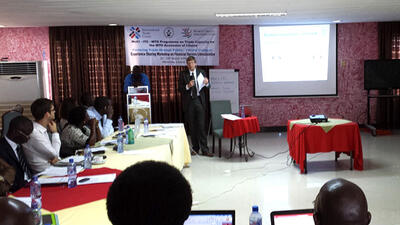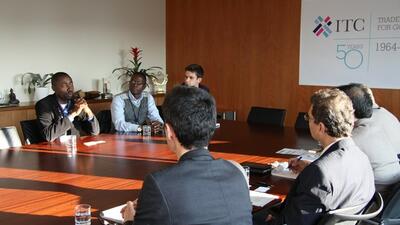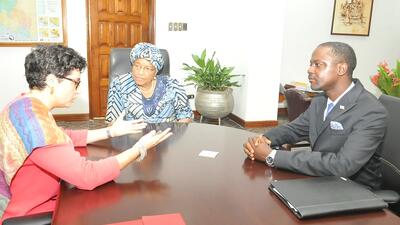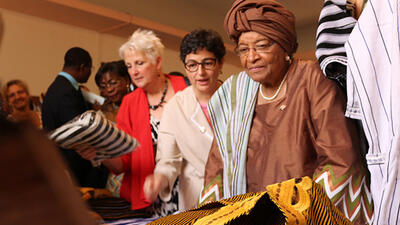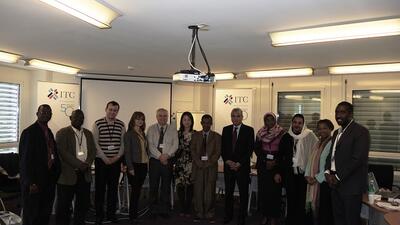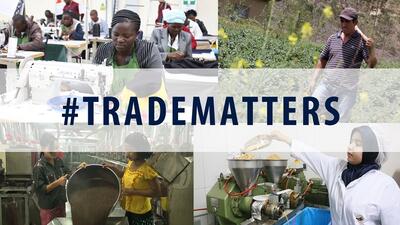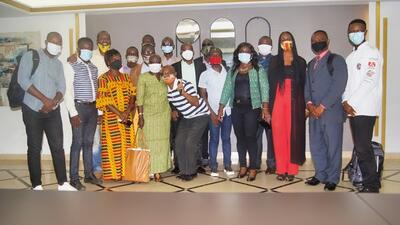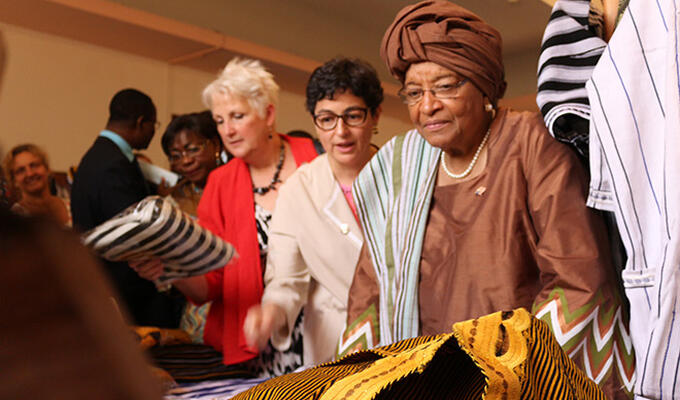

Las microempresas y las pequeñas empresas contribuyen al crecimiento económico y el empleo en Liberia (en)
Entrepreneurs of micro and small and medium-sized enterprises (MSMEs) in Liberia have generated positive development impact despite facing challenges such as limited skills, logistics, and access to finance and markets. The Executive Director of the International Trade Centre (ITC), Arancha González, made this observation at the opening of the 2nd National MSME Conference and Trade Fair in Monrovia, Liberia, on 29 April 2013.
Ms González said SMEs and entrepreneurship are drivers of economic growth and poverty reduction with SMEs serving as the biggest source of growth potential in Liberia making up 80 per cent of economic activity in the country and creating employment for over 90 per cent of the workforce.
‘For SMEs to succeed, they need the proper business environment and support and services that allow them to attract financing, human capital, networks and markets,’ said Ms González. ‘The world has move towards trading in tasks along value chains across borders. These chains are important avenues for SMEs to add greater value to their product, to diversify and innovate. They offer opportunities for new producers, including women and youth.’
On the launch of Liberia’s National Export Strategy (NES) and National Trade Policy (NTP) at the National MSME Conference and Trade Fair, the Executive Director said ITC has worked closely with Liberia to ensure good trade policies are supportive of stronger and more competitive MSMEs. The NES and NTP were developed by the Ministry of Commerce and Industry in collaboration with ITC.
‘Our interventions in Liberia are geared towards unlocking the productivity, marketability, competitiveness and job-creating potential to help businesses to internationalize. The NES is a compass for greater competitiveness in five priority sectors: cocoa, fish and crustaceans, palm oil, rubber and cassava. With this roadmap, we can expect to see Liberian businesses to grow, add greater value to input in Liberia, move up the value chain, and internationalize in step with consumer trends and demands,’ said Ms González.
On the NTP, she stated that it will offer guidance to policy makers on policy and structures which can support Liberia’s trade development, including requirements to align with its membership of the Economic Community of West African States (ECOWAS) and accession to the World Trade Organization (WTO). Ms González noted that Liberia’s membership in regional and multilateral blocs can help increase markets for its goods and services. This will enable Liberia to be involved in the development of regional and global trade policies and to outline its needs and priorities for trade-related capacity-building.
‘We are pleased to provide you with support, including in the areas of WTO Accession, trade facilitation, quality management and marketing to get Liberian SMEs to become more competitive so that more citizens can benefit from increased business activities. Liberia’s Accession to the WTO will be critical in creating opportunities to better diversify and build productive capacities within a rules-based structure.’






